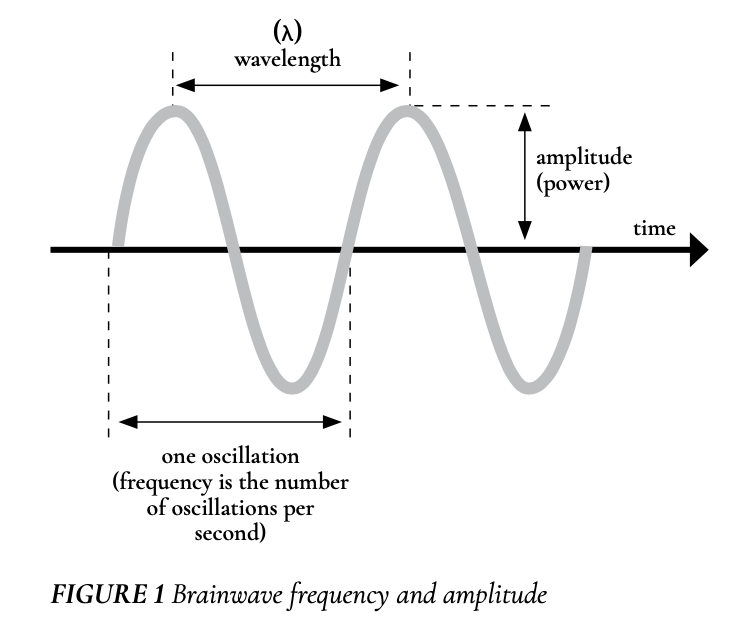
Intuition in Business: A Holistic Approach to Decision-Making
In the fast-paced world of business, decision-making can often seem like a balancing act between hard data and gut feelings. While data analysis and logical reasoning are undeniably critical, there is an often-overlooked aspect of decision-making that can be equally valuable: intuition.
Intuition, far from being a mystical or vague concept, springs from the very core of our cognitive processes. It is the result of the brain’s ability to synthesise information gathered through the senses and stored knowledge, offering innovative solutions to complex problems. By understanding how intuition works and learning to harness it effectively, a subject I explained in my book Psychic Powers, business leaders can enhance their decision-making processes, leading to more innovative and adaptive strategies.
Intuition and the brain’s process
At its core, intuition is a built-in ability, the brain’s way of processing and integrating vast amounts of information quickly and efficiently. This process begins with the sensory input—data gathered through our eyes, ears, and other senses. All sensory information is registered as electromagnetic pulses that are processed by the brain. These pulses, carrying data, are filtered and stored in the brain’s extensive memory network. When faced with a decision, the brain employs a process called “chunking” to piece together relevant bits of information from past experiences, knowledge, and sensory inputs. This rapid synthesis allows the brain to generate intuitive insights, which can often feel like sudden, inspired flashes of understanding.
Brain wave activity
Brainwaves are evidence of electrical activity in your brain, created when neurons send electrical pulses to one another, forming wave-like patterns. These patterns, or rhythms, are essential for brain functions like thinking, concentrating, and remembering. Brainwaves can be fast with low amplitude, or slow with high amplitude, and their speed is measured in Hertz (Hz). When you are awake and attentive, brainwaves are fast; when you are sleepy or bored, they slow down. All humans share the same four brainwave states, which are universal across cultures. By understanding and training in these states, such as alpha for meditation or theta for emotional healing, individuals can enhance their mental and psychic abilities.

Contrary to popular belief, intuition is not opposed to logic. Instead, it is a complementary process that draws on logical structures and data. By being open and curious to new ideas and information, individuals can enhance their intuitive capabilities, allowing them to perceive patterns and connections that might not be immediately apparent through logical analysis alone. Perhaps it is my Civil Engineering background that has grounded my intuitive abilities, life guidance and mentoring, thereby attracting business leadership. This grounding likely contributed to my recognition as one of “The Best 100 Psychics in The World” by paranormal investigator Hans Holzer on three occasions.
Being present and open to new perspectives
To effectively harness intuition in business, it is crucial to cultivate a mindset of awareness and openness. This means being fully present in the moment, attentive to the details of the current situation, and receptive to new information and perspectives. Practicing mindfulness can enhance this state of awareness, allowing business leaders to tune into their intuitive insights more readily.
Furthermore, fostering an environment that encourages creativity and open dialogue can help individuals feel more comfortable sharing their intuitive ideas. This collaborative atmosphere can lead to the discovery of innovative solutions that might otherwise remain hidden.
Holistic Unbox life mentoring™: integrating the four dimensions of change
Holistic Unbox life mentoring™ approach provides a comprehensive framework for integrating intuition into business decision-making. This methodology emphasises the four dimensions of change, known as BEMA: Body, Emotions, Mind, and Accountability. Each dimension plays a crucial role in the intuitive process, contributing to a well-rounded and effective decision-making strategy.
- Body (Senses): Our physical senses are the primary channels through which we gather data. By staying attuned to our sensory experiences, we can collect valuable information that informs our intuitive insights. Regular physical activities and practices such as yoga or mindful walking can enhance sensory awareness, grounding our intuitive processes in tangible experiences.
- Emotions: Emotions serve as important signals that can guide our intuitive judgments. By developing emotional intelligence, we can better understand and manage our feelings, using them as a tool to refine our intuition. Techniques such as journaling and reflective practices can help individuals process their emotions, leading to clearer and more accurate intuitive insights.
- Mind (Belief System): Our beliefs and thought patterns shape how we interpret information and generate intuitive ideas. By cultivating a flexible and open-minded attitude, we can break free from limiting beliefs and expand our capacity for innovative thinking. Engaging in continuous learning and exposing ourselves to diverse perspectives can stimulate the mental agility necessary for effective intuition.
- Accountability (Actions/Decision-Making): Intuition must ultimately translate into action to be valuable. Being accountable for our decisions involves a conscious commitment to act on our intuitive insights. This requires a balance between confidence in our intuition and a willingness to evaluate and adjust our actions based on feedback and outcomes.
Real-world applications: C-Suite executives and startups
Over the years, many of my clients have been C-suite executives and new startups, illustrating the broad applicability of intuition in business. For instance, one executive faced a critical decision about entering a new market. While data analysis provided a logical framework, it was their intuitive sense—shaped by years of industry experience and an acute awareness of market trends—that ultimately guided the decision. Similarly, a startup founder, inundated with conflicting advice, learned to trust her intuitive insights. Intuitive guidance helped her navigate the challenges of launching a new product.
Intuition in business decision-making
Incorporating intuition into business decision-making is not about abandoning logic or data-driven analysis. Rather, it is about enhancing these traditional approaches with the brain’s innate ability to synthesise information in novel ways. By understanding the cognitive processes behind intuition and adopting a holistic approach through the Unbox methodology, business leaders can unlock new levels of creativity and innovation. Embracing intuition as a valuable tool can lead to more adaptive, insightful, and effective business strategies. Ultimately it can foster a more dynamic and resilient organisational culture.
© Sahar Huneidi Palmer
🌐 Based in Dubai, UAE, Sahar offers online consultations.


